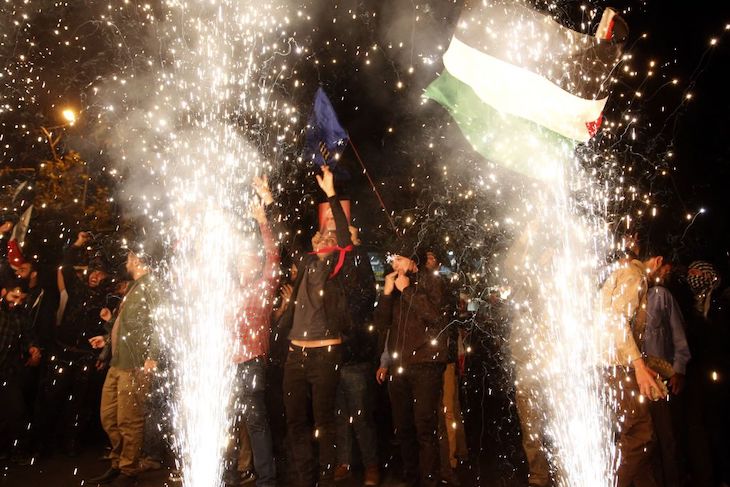The name of Hamas’ deadly terrorist attack on Israel over the weekend, the ‘Al-Aqsa Flood’, was deliberately chosen to galvanise support across the Muslim world. The group’s justification for the operation included desecration claims at the Al-Aqsa mosque in Jerusalem. Several Palestinian uprisings (intifadas) have been given the Al-Aqsa nomenclature over the years, including in September 2000 after then Israeli opposition leader Ariel Sharon’s walkabout on the historic compound.
Al-Aqsa was the original direction of prayer for Muslims but is now the third holiest site in Islam after Mecca and Medina. The site – also holy to Jews and Christians – is the location of the Isra wa Miraj, Prophet Mohammad’s night journey (Isra) to the ‘furthest mosque’ (Masjid al-Aqsa) and ascension (Miraj) through the seven heavens. Some claim the event is proof of Islam’s superiority, because of the special status given to the prophet. All three Abrahamic faiths agree that the End of Days – Judgement Day and Resurrection – will take place here.
Historical Sunni-Shia grievances have been set aside by Hamas and Iran
The deadly attack will embolden jihadist groups around the world and could lead to ideological differences being set aside for short-term gains.







Comments
Join the debate for just $5 for 3 months
Be part of the conversation with other Spectator readers by getting your first three months for $5.
UNLOCK ACCESS Just $5 for 3 monthsAlready a subscriber? Log in